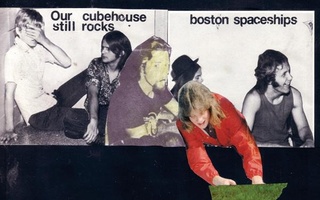In 1974, Boston Public Schools were ordered by the US District Court to racially integrate the schools that had majority of white students, leading to a mass resistance movement and public violence.
Tuesday evening, the Graduate School of Education’s Askwith Forum featured a new documentary, “Can We Talk? Learning from Boston’s Busing Desegregation Crisis” that catalogs the individual experiences of former Boston students, including some who were physically assaulted by protesters throwing rocks.
Donna Bivens, the coordinator of the Boston Busing/Desegregation Project, which produced the film, said that her purpose was to screen a portion of the documentary in order to receive feedback for the future, as well as “invite [viewers] into a process of having Boston look again at this era that was so critical and has shaped Boston into what it is today.”
The film featured individuals who were bused to South Boston High School, which was in a poor, predominantly white community that opposed the busing of blacks to its school and the busing of its own students to Roxbury High School in a predominantly black neighborhood.
During the first few weeks of school, hundreds of community members lined the streets of buses carrying black students throwing rocks at the children.
“They must have had buckets of rocks,” one woman said in the film. “You had to get low in the seats so you wouldn’t get hurt.”
Another was struck on her hand, and as she crouched down, a rock hit her friend in the eye.
The panelists and audience agreed that though these events happened decades ago, the residual trauma and racism still linger.
“Feelings don’t go away, reality doesn’t go away,” Ed School professor John Diamond said. “The reputation of the city is tied to this moment historically.”
Diamond, who was in kindergarten in 1974, still remembers the racial slurs that were thrown at him when he was bused to school in another neighborhood.
Audience member John E. Barbour, Jr., a longtime resident of Roxbury, said that while the individual testimonies were powerful, he would have appreciated more emphasis on the institutional problems with Boston Public Schools.
“I could see in the urban schools where my friends and family went, that [Boston Public Schools] weren’t even able to attract teachers that were good at educating,” he said, stressing that the school system should focus on universal quality education rather than on racial integration.
Though Barbour said his family had a long history of advocating for civil rights—he attended the March on Washington as a child—he said that he and his siblings were sent to suburban private schools.
Several audience members said they would have liked to hear the thoughts of those who were in the streets in September of 1974, a side of the story not portrayed in the film.
“Why were they seeing blacks as the problem?” Diamond asked.
—Staff writer Michelle M. Hu can be reached at michellehu@college.harvard.edu.
Read more in News
Hopes High for More Cadets with Return of NROTCRecommended Articles
-
Connect-the-Dot PoliticsW HY? WHY DID Mario Cuomo offer up 400 exhaustive and, at times, exhausting pages chronicling his ascension to the
-
 Still Rocking, Boston Spaceships Fall Short
Still Rocking, Boston Spaceships Fall Short -
For the Public GoodThe gap in quality between schools located within different Boston neighborhoods must be addressed if we expect de-facto segregation to diminish.
-
Harvard Idol: Student and Alumni Compete in HollywoodGreer has been selected as one of three finalists in the annual Harvard ROCKS competition—a singing contest presented by Harvardwood, an artist network whose membership is open to Harvard students, alumni, faculty, and staff.
-
Farewell, MeninoMenino’s departure marks the end of an era in Boston politics. During his tenure, Boston has changed dramatically, and we hope the next mayor will bring an innovative perspective to face the novel challenges and needs of Boston in a new age.
-
 5. Rocks
5. Rocks













